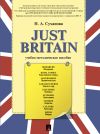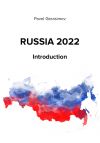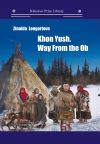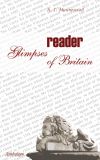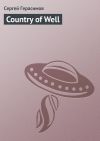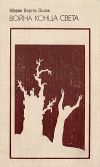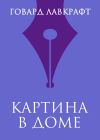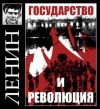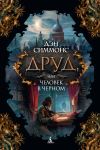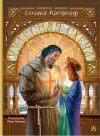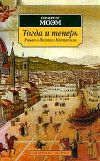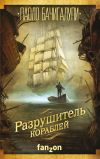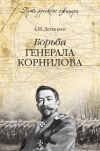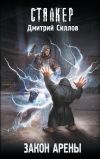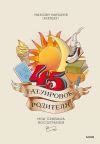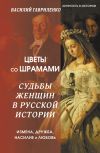Текст книги "Английский язык для студентов сельскохозяйственных вузов"
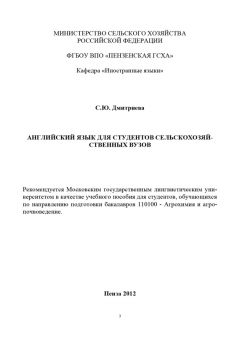
Автор книги: Светлана Дмитриева
Жанр: Учебная литература, Детские книги
сообщить о неприемлемом содержимом
Текущая страница: 2 (всего у книги 14 страниц) [доступный отрывок для чтения: 5 страниц]
LESSON 2
Task 1. Answer the questions.
1) Do you live with your family?
2) Is your family large?
3) How many people are there in your family? Who are they?
4) Do you have any brothers or sisters?
5) Who is the youngest in your family?
6) Who do you look like?
7) Have you got a pet?
8) What is your brother’s (sister’s) hobby?
9) What is your mother’s (father’s) occupation?
 Task 2. Interview your groupmates. Find someone in your group whose family is large, ( whose mother’s name is Mary, whose father is a doctor, who has relatives abroad, whose hobby is cooking ).
Task 2. Interview your groupmates. Find someone in your group whose family is large, ( whose mother’s name is Mary, whose father is a doctor, who has relatives abroad, whose hobby is cooking ).
Use the phrases: – May I ask you a question?
– Yes, certainly
– Have you got… ( What is your …? What is … hobby?)
– Really?
Task 3. Complete the table.

 Task 4. Memorize the following words and phrases:
Task 4. Memorize the following words and phrases:
1. relative [΄relətiv] – родственник; distant/close [΄distənt] [kləus] дальний/близкий
2. to be married [΄mærid] – быть замужем (женатым)
3. to get married – пожениться
4. to be single [΄siŋgl] – быть не замужем (не женатым)
5. to follow family customs [΄k٨stəmz] – соблюдать семейные традиции
6. to take after his (her) mother (father) in character – унаследовать характер матери (отца)
7. to look like smb. – быть похожим на …
8. close – дружный
9. to be bossy [bosi] – любить командовать, быть властным
10. old-fashioned [΄əuld΄fæ∫ənd] – старомодный, старинный
11. to earn [ə: n] money [΄m٨ni] – зарабатывать деньги
12. to take care [kεə] of – заботиться
13. to keep a family – содержать семью
14. to keep house – вести хозяйство
15. leisure [΄leʒə] – досуг; at leisure – на досуге
16. to bring up children – воспитывать детей
17. to spend time (spent, spent) – проводить время
18. mutual [΄mju:tʃuəl] respect – взаимоуважение; to respect – уважать
19. to make up a quarrel [΄kworəl] – уладить ссору
20. to argue [΄a: gju: ] – спорить
21. to be cross with smb. – сердиться на кого-л.
22. to celebrate [΄selibreit] a jubilee [΄ʤu: bili: ] – праздновать юбилей
23. to have (give) a party – устраивать вечеринку
24. pocket [΄pokit] money – карманные деньги
25. to hate doing smth. – ненавидеть (что-либо делать)
26. to enjoy [in΄ʤoi] – наслаждаться
27. to be proud [praud] of – гордиться
28. to be missing – скучать
29. family tree – семейное дерево
30. to get on with smb. – ладить, хорошо общаться
31. to annoy – раздражать
Task 5. Finish up the sentences.
1) My mother has got a sister. She is my …
2) I have got a brother. His wife is my …
3) My aunt’s children are my …
4) I have got a sister. Her son is my …
5) My father has got a brother. He is my …
6) My mother has got a father. He is my …
7) My cousin is fond of …
Task 6. Complete the sentences:
a) I hate it when my sister (brother, nephew…) …
b) I don’t like people who …
c) It realy annoys my mother (dad) when I (my friends, people) …
d) I enjoy …
For ideas: talk too loudly, always arrive late, leave things on the floor, always on the phone, watch sport on TV, driving a car, swimming.
Task 7. Divide the following words into two groups: 1) work 2) hobby ( Can one and the same word go into both groups?)
Swimming, knitting, repairing, reading, dancing, driving a car, working in the garden, translating, computer, cooking.
Task 8. Translate the phrases. Make up sentences with them.
A friend of my aunt, to speak of something, one of them; to operate by hand, to speak by telephone, to sit by the window, a book by Tolstoy; to speak about my family, he is about thirty; to speak to my mother, to write with a pencil, to get on with everybody.
Task 9. Translate the sentences.
1) Моя мама – учитель. 2) Мы с отцом любим футбол. 3) У моей тёти очень много старинных вещей. 4) Аня пошла в мать характером. 5) Моё хобби – компьютерные игры. 6) Моя сестра – экономист. У неё есть малыш. Её свекровь помогает ей с ним. Я тоже люблю моего племянника. 7) Мой дедушка – фермер. 8) Я терпеть не могу готовить на всю семью. 9) Что труднее: зарабатывать деньги или воспитывать детей? 10) Я старшая, поэтому мне приходится улаживать споры. 11) Мы гордимся нашим дедушкой.
 Task 10. In pairs, act out and translate the dialogues.
Task 10. In pairs, act out and translate the dialogues.
a) – Have you got a large family?
– No, my family is rather small: my wife, my only son and I.
– What is your son’s name? How old is he? What is his hobby?
– Not so many questions at once. My son, Alec, is eleven and he is fond of computer games.
b) – Is your family large?
– Not very large. There are four of us: my wife, my two children and I.
– How old are your children?
– My son is fourteen and my daughter is twenty.
– What do they do?
– My son is a schoolboy. My daughter is a student.
– I see.
c) – Do you often see the Browns?
– Yes, I do.
– What do they do?
– Mr Brown is a doctor and works at the hospital all day.
– And what about his wife, Mrs Brown?
– Oh, she isn’t working now. She has a baby.
– I see.
d) – Hi, Mary! Is your son at home?
– Yes, he is. What’s the matter?
– I want to introduce him to my daughter.
– Really? And what does she like doing?
– Well, she likes dancing, singing songs, and going to parties…
– Oh, my son doesn’t like dancing, he doesn’t sing songs and he doesn’t like going out.
– And what does he like then?
– He’s fond of reading, cooking, and working in the garden.
 Task 10. In pairs, act out a conversation about your families.
Task 10. In pairs, act out a conversation about your families.
Тext 1
My Family
Let me introduce myself. My name is Philip Stanley. I am 40. I am a doctor. I work at a hospital in Liverpool. Liverpool is the biggest city in Lancashire. I like my work very much. I am married. My wife’s name is Linda. She is 32. She is kind and beautiful. She is a teacher at school. Our hobby is working in the garden. Our daughter Nora is 12. She is a schoolgirl. She looks like her mother and takes after her mother in character. Her hobby is dancing.
My parents are farmers. They have got a farm not far from the city. They breed pigs. But best of all they like roses. They have to work from morning till night. I have got many relatives: uncles, aunts, cousins, nephews. We often get together at our parents’ house.
Exercise 1. Read and translate the text.
 Exercise 2. In pairs, agree or disagree with the following statements:
Exercise 2. In pairs, agree or disagree with the following statements:
Use the phrases: You are right (to a certain extent). – Вы правы ( отчасти ).
You are mistaken. – Вы ошибаетесь.
1) Philip Stanley is a farmer.
2) He lives in the biggest city of Lancashire.
3) He is married and has got a son.
4) Linda is a doctor.
5) Linda’s hobby is dancing.
6) Their parents’ farm is far from the city.
7) They breed pigs and rabbits.
8) They are a close family.
 Exercise 3. Complete the chart with information about Philip’s family.
Exercise 3. Complete the chart with information about Philip’s family.

 Exercise 4. Tell your groupmates about your family.
Exercise 4. Tell your groupmates about your family.
BE READY
 In groups, discuss the following: 1) the advantages and disadvantages of growing up in a large (small) family; 2) your idea of a close family 3) the head of the family; 4) “generation gap”.
In groups, discuss the following: 1) the advantages and disadvantages of growing up in a large (small) family; 2) your idea of a close family 3) the head of the family; 4) “generation gap”.
Use the words:
To my mind (по-моему); it is difficult to say (трудно сказать); to help each other (помогать друг другу); to get together at one’s parents’ house (собираться в доме родителей); the parents’ attention (родительское внимание); more financial support (больше финансовой поддержки); to receive better education (получить лучшее образование); to feel lonely (чувствовать себя одиноким); to be a burden for smb. (быть обузой); to respect (уважать); to be economical (быть экономным); to earn more money (зарабатывать больше денег); to keep house (вести домашнее хозяйство); to have a strong character (обладать сильным характером); to be a reliable person (быть надёжным человеком).
 Задание на аудирование
Задание на аудирование
Прослушайте текст (Unit 1 Text 1 “My Biography”) дважды и постарайтесь понять его содержание. Выполните предложенные задания.
1) Finish up the sentences.
My name is …
My surname is …
I was born in …
But now I live in …
My family consists of … people. They are …
I am a student of … My future specialization is …
My hobbies are …
2) Which of the following statements are false?
He was born in spring.
He was born in a small town.
Now they live in Samara.
His mother is a bookkeeper.
He has got an elder sister. He is a first-year student.
His future profession is connected with automobiles.
English is one of his favourite subjects.
3) Make up a plan of the text and retell it.
PHONETICS
Буквосочетания с “e”

!!! Remember [e] treasure, measure, weather, feather, heavy.
Exercise 1. Read the words correctly.
a) seek, feel, geese, feet, deep, bee, seen, wheel, meet, meeting, see, week, green.
b) clean, sea, mean, meaning, deal, speak, speaker, peak, please, reading, stream.
c) near, hear, dear, clear, appear, disappear, nearest, tear, ear, fear, dearest. rear, rearing, gear-box, shear.
d) beer, jeer, deer, severe, mere, here, pioneer, sphere, atmosphere, cheer, steer.
e) head, bread, headed, dead, meadow.
f) grey, Jersey, survey, convey, they, obey, eight, weight, freight.
g) learn, pearl, heard, early, earth, rehearsal.
Чтение согласной “g”

!!!Remember [g] girl, get, give, forgive, gear.
Exercise 2. Read the words correctly.
Page, gun, gentle, gender, germ, grade, huge, give, game, judge, egg, eggs, engine, wing, sing, spring, tank, sink.
GRAMMAR
THE ARTICLE
Артикль
В английском языке два артикля: определённый (the) и неопределённый (a, an). Артикль – служебное слово, являющееся определителем существительного.
Неопределённый артикль (a, an) употребляется только в единственном числе, когда лицо или предмет не знакомы или употребляются впервые. Имеет значение: один из многих, какой-то, любой.
Определённый артикль (the) употребляется как в единственном, так и во множественном числе а также с неисчисляемыми существительными, когда лицо или предмет знакомы или известны говорящиму, и слушающему.
E.g. Her sister has got a nice house. (Собеседник впервые слышит о доме её сестры). The house faces my office. (Он уже знает, о каком доме идёт речь, т. е. о ранее упомянутом доме её сестры).

 Артикли всегда относятся к существительным, поэтому при отсутствии существительного артикль употребляться не может. Артикль не используется, если перед существительным употребляется притяжательное местоимение, указательное местоимение, существительное в притяжательном падеже или местоименное наречие (some, any, a few, many, much, etc.). Eg. our garden, this man, much energy.
Артикли всегда относятся к существительным, поэтому при отсутствии существительного артикль употребляться не может. Артикль не используется, если перед существительным употребляется притяжательное местоимение, указательное местоимение, существительное в притяжательном падеже или местоименное наречие (some, any, a few, many, much, etc.). Eg. our garden, this man, much energy.
 Определенный артикль употребляется, если перед существительным стоит
Определенный артикль употребляется, если перед существительным стоит
а) порядковое числительное: the first day;
б) прилагательное в превосходной степени: the best friend;
в) слова: wrong, right, same, only: the wrong size
 Определенный артикль употребляется, если существительное обозначает уникальную вещь, единственную в своем роде: the moon, the sun.
Определенный артикль употребляется, если существительное обозначает уникальную вещь, единственную в своем роде: the moon, the sun.
Exercise 1. Put in a, an, some or nothing. Sometimes some variants are possible.
1) Have you got … camera?
2) Would you like to be … actor?
3) Do you collect … stamps?
4) Tom always gives Ann … flowers for her birthday.
5) What … beautiful garden!
6) … birds cannot fly.
7) When I was … child, I used to be shy.
8) Jane is … teacher.
9) You need … visa to visit … foreign countries.
Exercise 2. Put in a or the or nothing.
1) I am looking for … job.
2) Close … door, please.
3) We live in … small flat in … center of … town..
4) This is … nice house. Is there … garden near it?
5) … Soviet Union is … first country to send … man into space.
6) … longest river in Great Britain is … Severn.
7) When do you have … dinner?
POSESSIVE PRONOUNS
Притяжательные местоимения
Притяжательные местоимения выражают принадлежность и отвечают на вопрос чей? чья? чьё? чьи?
Притяжательные местоимения имеют две формы:
1) простую (или зависимую, т. е. после неё следует существительное, возможно с прилагательным)
E.g. My book; my new book.
2) независимую (употребляется самостоятельно, подразумевая ранее упомянутое существительное)
E.g. I have no pen. Give me yours, please.

Exercise 1. Complete the chain.
a) I – … – mine
b) … – his – his
c) she – her – …
d) we – … – …
e) … – … – yours
f) … – their – …
Exercise 2. Choose the correct variant.
1) I’ve left … pen, give me … (yours, your, my, mine), please.
2) Is … family large? ( your, yours)
3) Mr. Brown and Mrs. Brown have got two children. Both … children are boys. ( their, theirs)
4) … profession is more interesting than … ( hers, his,)
5) I don’t like … pencil, please, give me … ( my, your, yours)
6) Whose aunt is in the hall? – … ( mine, my)
7) We are French and … friends are English. ( our, ours)
8) … daughter has a dog. … nose is long. ( its, her, mine, my)
Exercise 3. Replace the personal pronouns by the corresponding possessive pronouns.
1) ( We) table is near the window.
2) I have some books in ( I) bookcase.
3) ( She) family is in London now.
4) Those are ( they) instruments.
5) This is a table. ( It) surface is equal to 4 square meters.
6) ( I) mother is a doctor. 7) ( We) family is small.
PREPOSITIONS
Предлоги

Exercise 4. Use the right prepositions.
1. She is … thirty.
2. Please leave my mail … my table.
3. Let’s listen … Mike.
4. There are many people … the park today.
5. He was taken to the hospital … an ambulance.
6. I hate traveling … water.
7. She can’t do it … your help.
8. We could hear rain falling … the roof.
9. My birthday is … the 27th of November.
10. The house was built … a beautiful piece … land.
11. I usually listen … the news … the radio while I’m driving … work.
12. Mel Gibson was born … 1956.
13. I cut my arm … a piece of glass.
14. We arrived just as ceremony was … to begin.
LESSON 3
Task 1. Answer the questions.
1) Are you a student?
2) Where do you study?
3) What faculty do you study at?
4) What subjects do you study?
5) What is your favourite subject?
6) Is it difficult for you to study?
7) What is your dean’s name?
8) What is your English teacher’s name?
9) How many double periods do you have every day?
10) Is your group large? Who is your friend in your group?
 Task 2. Interview your groupmates. Find someone in your group who is fond of pop music, whose favourite subject is English ( mathematics ), who is good at sport, who is from another town, who lives in the hostel or rents a flat.
Task 2. Interview your groupmates. Find someone in your group who is fond of pop music, whose favourite subject is English ( mathematics ), who is good at sport, who is from another town, who lives in the hostel or rents a flat.
Begin with: Excuse me, please. May I ask you a question? Аre you… (Do you … Where are you from?)
 Task 3. Memorize the following words and phrases.
Task 3. Memorize the following words and phrases.
1. faculty [΄fækəlti] – факультет
2. faculty of agronomy [ə΄gronəmi] – агрономический ф-т
3. faculty of economics [‚i: kə΄nomiks] – экономический ф-т
4. engineering faculty [‚enʤi΄niəriŋ] – инженерный ф-т
5. technological [teknə΄loʤikəl] faculty – технологический ф-т
6. dean [di: n] of … faculty – декан … ф-та
7. rector [΄rektə] – ректор
8. lecturer [΄lektʃərə] – преподаватель
9. senior [΄si: njə] lecturer – старший преподаватель
10. assistant [ə΄sistənt] professor [prə΄fesə] – доцент
11. on the 1st, 2nd, 3d… floor [flo:] – на 2, 3, 4 – м этаже
12. full [ful] time [taim] department [di΄pa:tmənt] – очное отделение
13. extra-mural [΄ekstrə΄mjuərəl] department – заочное отделение
14. teaching staff [΄ti:tʃiŋ΄sta:f] – преподавательский состав
15. curriculum [kə΄rikjuləm] – учебный план, расписание
16. lecture hall [΄lektʃə΄ho:l] – лекционный зал
17. canteen [kæn΄ti: n] – студенческая столовая
18. hostel [΄hostəl] – общежитие
19. course paper [΄ko:s΄peipə] – курсовая работа
20. diploma [di΄pləumə] paper – дипломная работа
21. activity [æk΄tiviti] – деятельность, вид деятельности
22. fellow student – товарищ по группе (по курсу)
23. Institution of higher education – ВУЗ
24. academic [΄ækə΄demik] year [jiə] – учебный год
25. double-period [΄d٨bl΄piəriəd] – пара, сдвоенное занятие
26. tutorial [tju(:)΄to:riəl] – занятие, консультация, семинар
27. research [ri΄sə:tʃ] – исследование
28. public [΄p٨blik] life [laif] – общественная жизнь
29. foreign [΄forin] languages [΄læŋgwiʤiz] – иностранные языки
30. grant [gra: nt] – стипендия
31. science [΄saiəns] – наука
32. knowledge [΄noliʤ] – знание
33. to be founded [΄faundid] – быть основаным
34. post-graduate [΄pəust΄grædjuit] – аспирант
35. to take an examination [ig΄zæmi΄nei∫ (ə)n] – сдавать экзамен
36. to pass an examination – сдать (выдержать) экзамен
37. to make a report [ri΄po:t] – готовить доклад
38. to attend [ə΄tend] – посещать
39. to participate [pa:΄tisipeit] – участвовать
40. to take part in… – принимать участие в …
41. to receive [ri΄si: v] – получать
42. to include [in΄klu:d] – включать
43. entrance [΄entrəns] exams [ig΄zæmz] – вступительные экзамены
44. subject [΄s٨bʤikt] – предмет
45. term [tə:m] – семестр
46. applicant [΄æplikənt] – абитуриент
Days of the Week
Monday – on Monday; Tuesday – on Tuesday; Wednesday – on Wednesday; Thursday – on Thursday; Friday – on Friday; Saturday – on Saturday; Sunday – on Sunday
Word-building exercise
Read the nouns and translate them. Pay attention to the suffixes.
Scientist, doctor, teacher, brother, rector, professor, computer, attachment, depth, measurement, division, production, function, development, mathematics, session.
Task 4. Make up sentences.

Task 5. Make up pairs of synonyms.
Curriculum, teacher, research, chair, plan of studies, lesson, lecturer, take part in, department, be engaged in, appreciate, scientific study, informatics, computer studies, value, double-period.
Task 6. Find the most general word in each chain.
1) mathematics, history, subject, English.
2) research, practical-training, laboratory work, activity.
3) sport, public life, dancing, students concert, reading, music, disco.
 Task 7. In pairs, act out and translate the dialogues.
Task 7. In pairs, act out and translate the dialogues.
a) – Why, Paul! What a pleasant surprise!
– Hello, Mike. This is a small world! Now I am a first-year student of …
– Let me guess. Are you a student of the faculty of engineering?
– No, I’m not.
– Technological faculty?
– You’re mistaken again.
– Oh, yes. You study at the faculty of economics.
– Right you are.
– My best congratulations!
– Thanks.
b) – Excuse me.
– Yes, What can I do for you?
– Where is the dean’s office?
– Which faculty?
– The faculty of agronomy.
– It is on the first floor to the right.
– Thank you
– Don’t mention it.
c) – How many double periods do you have a day?
– Let me see … On Monday and Friday we have three double periods, on
– Wednesday – five, the rest of the week – four double periods.
– Do you study on Saturday?
– No.
d) – What is your favourite subject?
– It is difficult to say. I like mathematics, informatics, English and some other subjects.
– Are you good at chemistry?
– Not very good, but I find it rather interesting.
– I see.
e) – Hi, Nick! I haven’t seen you at the University for a while. What’s the matter?
– You see, Mike, now I am a student of the extra-mural department.
– Really?
– I work and study. I’ve got married.
– Glad to hear it. Is your wife a student?
– Yes, she is.
Task 8. Find English equivalents for the following phrases in the dialogues:
– Трудно сказать.
– Понятно.
– Рад за тебя (слышать об этом).
– Что случилось?
– Как тесен мир!
– Мои сердечные поздравления!
– Дай подумать.
– Не стоит благодарности.
 Task 9. In pairs, talk about your studies at the institute. Find out:
Task 9. In pairs, talk about your studies at the institute. Find out:
• What made him (her) choose this profesion;
• His (her) interests;
• His (her) favourite subjects;
• Difficult subject(s) for him.
Text 1
Timiryasev Agricultural Academy
Timiryasev Agricultural Academy was founded in 1865 as Petrovskaya Academy. It is one of the oldest academies in Russia. In the 19th century only 300-400 students studied there. Now the number of students has increased to 3000. Many of them come from villages.
The teaching staff includes high-skilled teachers, assistant professors and professors. Scientists of the academy are well-known not only in Russia but in the whole world of agricultural science. There are five faculties in the academy:
– the faculty of agronomy;
– the faculty of economics;
– the faculty of zoo engineering;
– the faculty of horticulture;
– the faculty of agro-chemistry.
In the academy there is an extra-mural department. Not only teachers but many students are engaged in research. They investigate many interesting fields in agriculture: poultry-farming, horse-raising, protected plant-breeding, medicinal plants, agricultural economics and many others.
There are spacious lecture halls, laboratories, a big library, reading-rooms, a computer center in the academy. The students have a good opportunity to study foreign languages because there are well-equipped laboratories for English, German and French there.
Exercise 1. Scan the text and understand its contents.
Exercise 2. Find English equivalents for the following terms in the text:
садоводство, птицеводство, разведение парниковых культур, лекарственные растения, коневодство.
Exercise 3. Arrange the items of the plan in the correct order.
Plan
I Research Activities
II The Foundation
III The Faculties
IV The Teaching Staff
V Lecture Halls and Laboratories
 Exercise 4. In pairs, agree or disagree with the statements:
Exercise 4. In pairs, agree or disagree with the statements:
a) Moscow Timiryasev Agricultural Academy is older than my institute.
b) There are four faculties in Timiryasev academy.
c) About 4000 students study at the academy.
d) There is no extra-mural department in the academy.
e) Professors and teachers are engaged in research.
Use the speech patterns:
– You are right. – Вы правы.
– You are mistaken. – Вы ошибаетесь.
– On the contrary. – Напротив.
– You are right to a certain extent. – Отчасти, Вы правы.
Text 2
Penza State Agricultural Academy
Penza State Agricultural Academy was founded in 1951 as an agricultural institute. Since 1995 it has had the status of an academy. Now it is a large-scale institution of higher education and the centre of agricultural science in Penza region.
The academy is headed by the rector. The types of activities are:
1) teaching;
2) research;
3) close cooperation with different farms of Penza region in agricultural production.
There are four faculties in the academy: the faculty of agronomy, the faculty of engineering, the technological faculty and the faculty of economics. About 4000 students study at the full-time and extra-mural departments. More than 200 lecturers work at the academy, among them are doctors of sciences and professors.
The course of studies at the academy lasts five years. The academic year starts in September and ends in June. Classes start at eight o’clock in the morning. Every day the students have three or four double-periods. They take their examinations twice a year. The curriculum includes theoretical studies of special subjects and social sciences and practical training. During the semesters students attend lectures, tutorials, carry out laboratory tests, do practical work.
The students actively participate in the scientific, sport and public life of the academy: they take part in conferences, sport contests, foreign language competitions, concerts. Many students receive grants.
Exercise 1. Read and translate the text.
Exercise 2. Make up a plan to the text.
Exercise 3. Answer the questions.
1) When was Penza agricultural academy founded?
2) Who is the head of the academy?
3) What are the types of activities?
4) What faculties are there in the academy?
5) What specialists does the teaching staff include?
6) Is there an extra-mural department in the academy?
7) How long does the course of studies last?
8) How many double-periods do the students have every day?
9) What do the students do during the semesters?
10) How do students participate in the scientific, public and sport life?
 Exercise 4. In pairs, act out a conversation between students of the two academies (see Texts 1, 2).
Exercise 4. In pairs, act out a conversation between students of the two academies (see Texts 1, 2).
 Exercise 5. Make a report about your institute.
Exercise 5. Make a report about your institute.
Use the following:
1) I study at …
2) My institute ( academy, university) was founded in …
3) It trains specialists in the sphere of …
4) There are … faculties in … They are…
5) It is headed by …
6) … students study at …
7) The course of studies lasts …
8) The academic year starts … and ends …
9) Every day we have …
10) My favorite subject(s) is (are) …
11) The students are to …
12) The students take part in …
The Curriculum
Task 1. Match the English words with their Russian equivalents.

 Task 2. Make up your timetable.
Task 2. Make up your timetable.

What can you say about your English?
1. For how many years have you been studying English?
2. Are you a success?
3. What are you good at: reading, listening or speaking?
4. Is English grammar difficult for you?
Task 1. Make up sentences to express your thoughts.

Task 2. Match proverbs and sayings with their Russian equivalents.

Task 3. What is the language situation in your country? Write two paragraphs and make sure you answer the questions:
a) Is there more than one official language?
b) How many different languages do people speak?
c) Are there dialects?
d) Is the language of radio and TV the same as the language in the street?
e) What does English mean to you?

What time is it now?
– Excuse me, please.
– Yes.
– What time is it now?
– Let me see … It’s ten to eight.
– Thank you.
Task 1. In pairs, practise using the following:
a) 5.30 – it is half past five
9.45 – it is a quarter to ten
4.15 – it is a quarter past four
10.00 – it is ten o’clock
b) What time is it now?

Task 2. Continue the sentences.
1) I get up at … 2) I have breakfast at … 3) Classes start at … 4) I come home at … 5) My friend comes for me at … 6) In the evening I … 7) I go to bed at …
Text 3
The Higher School and the Ways to Science
Students’ participation in research is one of the most effective methods for training highly-qualified specialists capable of taking part in the rapidly developing scientific and technological revolution.
Students are encouraged to participate widely in research while still at college. The program of studies is designed in such a way as to draw students ever deeper into scientific research.
Research enables the students to improve their knowledge and put to practical use the things which have been learnt at lectures, seminars and laboratories. Thanks to the research the practical value of knowledge is being realized, the basic experimental techniques are being mastered, handling modern equipment is being learnt and the results of the experiments are being analyzed during the whole period of study.
Such students graduate as highly-skilled specialists. And this is one of the most important tasks facing the college.
There are students research societies at every university and institute. Contests, competitions and exhibitions are based on students’ research. They have become an established tradition.
Every year a country-wide student contest is held for the best research project. The winners are awarded special medals and diplomas.
Students are engaged in research under guidance of professors, instructors, engineers and post-graduates. As a rule, term papers and graduation thesis are written on the problems of the students’ research work. Experimental and industrial installations are performed, theoretical investigations are conducted, and scientific literature on the specialty is studied.
Quite a number of term papers and graduation theses include elements of research which have been done at some higher school department on contact with farm or industrial enterprises. Term papers, research work, graduation theses of practical importance are regarded as the stages of turning students into skilled specialists.
Wordlist
participation – участие
to encourage – поощрять
to design – составлять, разрабатывать, проектировать
to draw (drew, drawn) into research – вовлекать в исследования
to enable – давать возможность
value – ценность
to graduate from – окончить вуз
contest – конкурс
to award – награждать
to maintain – поддерживать
to involve – включать, вовлекать
Exercise 1. Scan the text.
Exercise 2. Match English equivalents with the phrases:

Exercise 3. Answer the questions.
1) What is one of the most effective methods for training highly qualified specialists?
2) When are students encouraged to participate in research?
3) What does research enable the students to improve?
4) Under whose guidance are students engaged in research?
5) How are graduation theses of practical importance regarded?
Exercise 4. Express your thoughts to develop the idea: “University work is a process of self-education”.
Text 4
…
State higher education in the Russian Federation comprises 522 higher education institutions, not including military institutions.
The non-state sector with more than 330 higher education institutions has evolved over recent years. There are also 24 preparatory departments available to foreign students.
The levels of studies are:
Level 1 lasts 2 years. Students study for a Bachelor’s or specialist intermediate diploma.
Level 2 marks the continuation of studies for an additional two years leading to a Bachelor’s degree.
Level 3 represents an educational level common to both the Master’s Diploma and the Specialist diploma.
The academic year lasts from September to June. There are two semesters.
The number of students who study free of charge (those who don’t pay for their education) is limited by the number of scholarships. All applicants are to present a school leaving certificate and a medical cerificate confirming their good state of health.
Every institute selects its students mainly on the results of entrance examinations.
preparatory departments – подготовительные отделения
school leaving certificate – аттестат зрелости
medical certificate confirming their good state of health – справка о состоянии их здоровья
Exercise 1. Scan the text and suggest a title for it.
Exercise 2. Find sentences about:
a) the number of institutions of higher education in Russia;
b) the preparatory department for foreign students;
c) the levels of studies;
d) the main documents for presentation before entrance examinations
Classroom expressions
What date is it today? – Какое сегодня число?
What day is it today? – Какой день недели?
Today is … – Сегодня …
What was your home task for today? – Что вам задано на сегодня?
We were to (read, translate, retell …) – Нам нужно было ( прочитать…)
What is your opinion of the text? – Ваше мнение о тексте?
To my mind it is (difficult, interesting, boring) – По-моему, текст трудный, (интересный, скучный)
How much time did it take you to read and translate it? – Сколько времени у Вас ушло на его перевод?
Правообладателям!
Данное произведение размещено по согласованию с ООО "ЛитРес" (20% исходного текста). Если размещение книги нарушает чьи-либо права, то сообщите об этом.Читателям!
Оплатили, но не знаете что делать дальше?